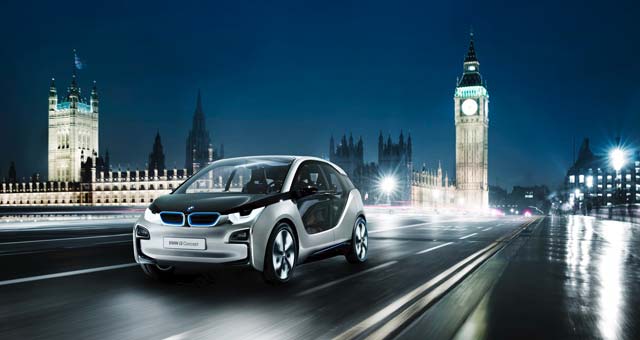Recent Study Reveals 40% of UK Oil Imports Can Be Slashed By Electric Cars in 15 Years
- 31/08/2015
- Transport
- Posted by Tessa Romarez
- Leave your thoughts
Like most countries suffering from the adverse effects of climate change, coupled with increasing fuel prices, the United Kingdom is aching for solutions.
A recent study shows that the country can solve these two major problems by using more electric cars.
Electric vehicles will not only reduce greenhouse gas emissions, and reduce fuel prices, but they can also mitigate the adverse health effects of air pollution caused by a public passenger fleet half of which is run by diesel engines, equipped with outdated emission controls.
Researchers have recently quantified an estimate of the extent of the potential benefits that UK residents could enjoy if more electric cars are used in the country.
This new study claims that a wider adoption of electric cars could reduce UK oil imports by 40 per cent, and thus save £1,000 pound or $1,495 in fuel costs each year per driver.
The study conducted by Cambridge Economics said that if this is realized, it would lead to a 47 per cent drop in the country’s carbon emissions. This study was commissioned by the European Climate Foundations.
The researchers also found that emissions of nitrogen oxide and particulates could be virtually eliminated. When this happens, there will be a massive decrease in the cases of respiratory illnesses, which can also potentially save an additional billion pound – about $1.4 billion in healthcare expenses.
Carbon emissions have been the focus of European politicians and the general public in recent times.
Different groups have been challenging the decades-long dominance of diesel cars. They want the air quality to improve by way of stricter emissions control.
But, all the health benefits they desire will only be possible if more and more electric cars are deployed on UK roads – on a large scale. According to The Guardian, this is still a long way off.
There are two assumptions made by the authors of the study. One – that there will be more than 6 million electric cars in the UK by 2030 and then 23 million by 2050. Second – that most of the energy that will be used to run these cars will be provided by renewable energy.
Currently, the public’s interest regarding electric cars seems to be supportive enough to justify that projected growth. A government survey in the UK in June 2014 revealed that only 1 per cent of drivers would consider a plug-in for their next car.
The following December of that same year, a survey made by Automobile Association showed the same general result.
There is a subsidy that the UK government offers for new electric car buyers. This subsidy is approximately 5,000 pounds. However, the government has recently killed a significant proposal to expand charging infrastructure.
If this plan was sustained, it would have increased the number of UK charging stations from 703 in 2012, to 1.2 million by 2020.
Thankfully, evidence shows that UK consumers are starting to change their views about electric cars. Proof of this is the sales of plug-in electric cars. Sales for 2014 are four times higher than it was in 2013.

